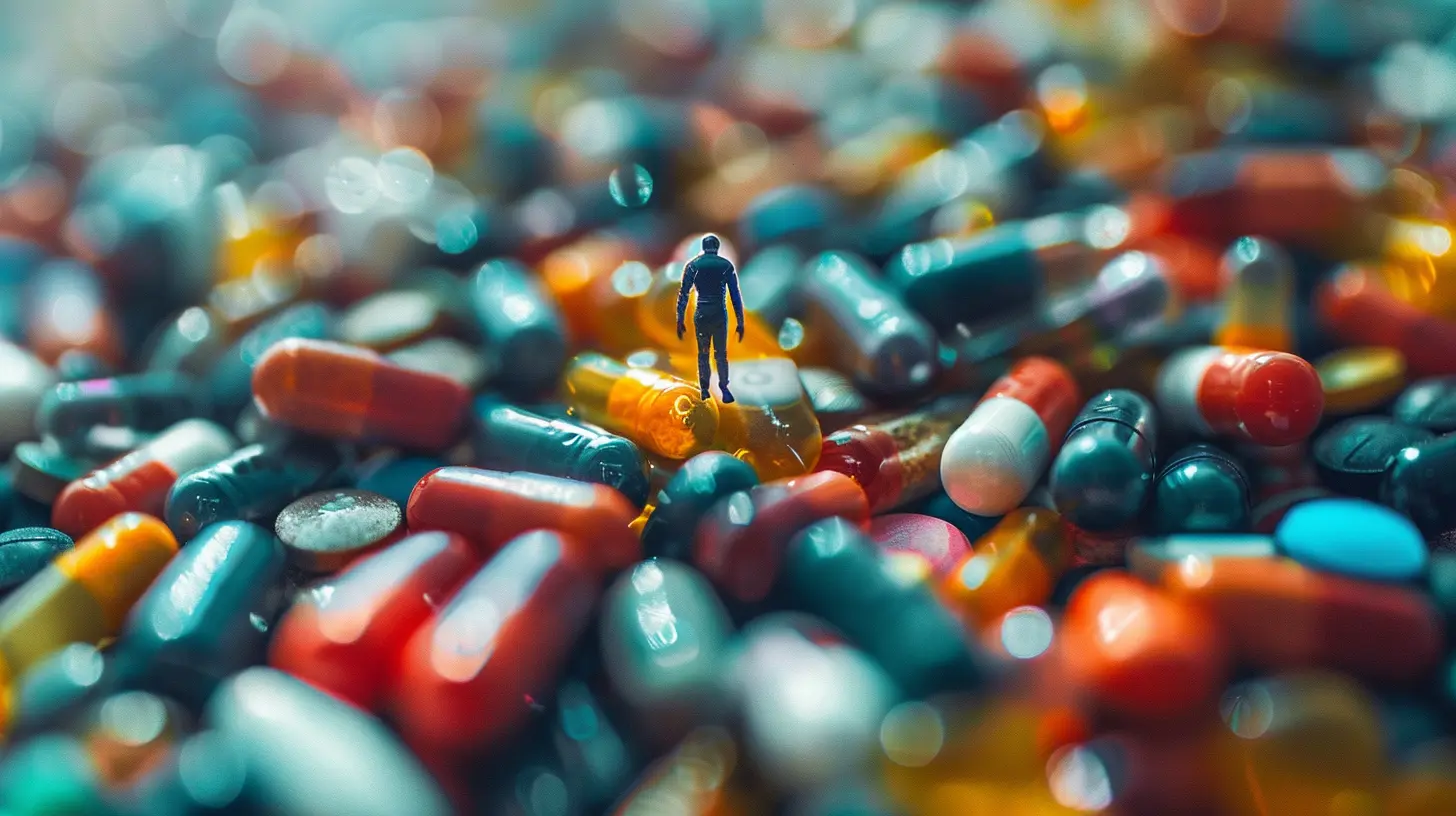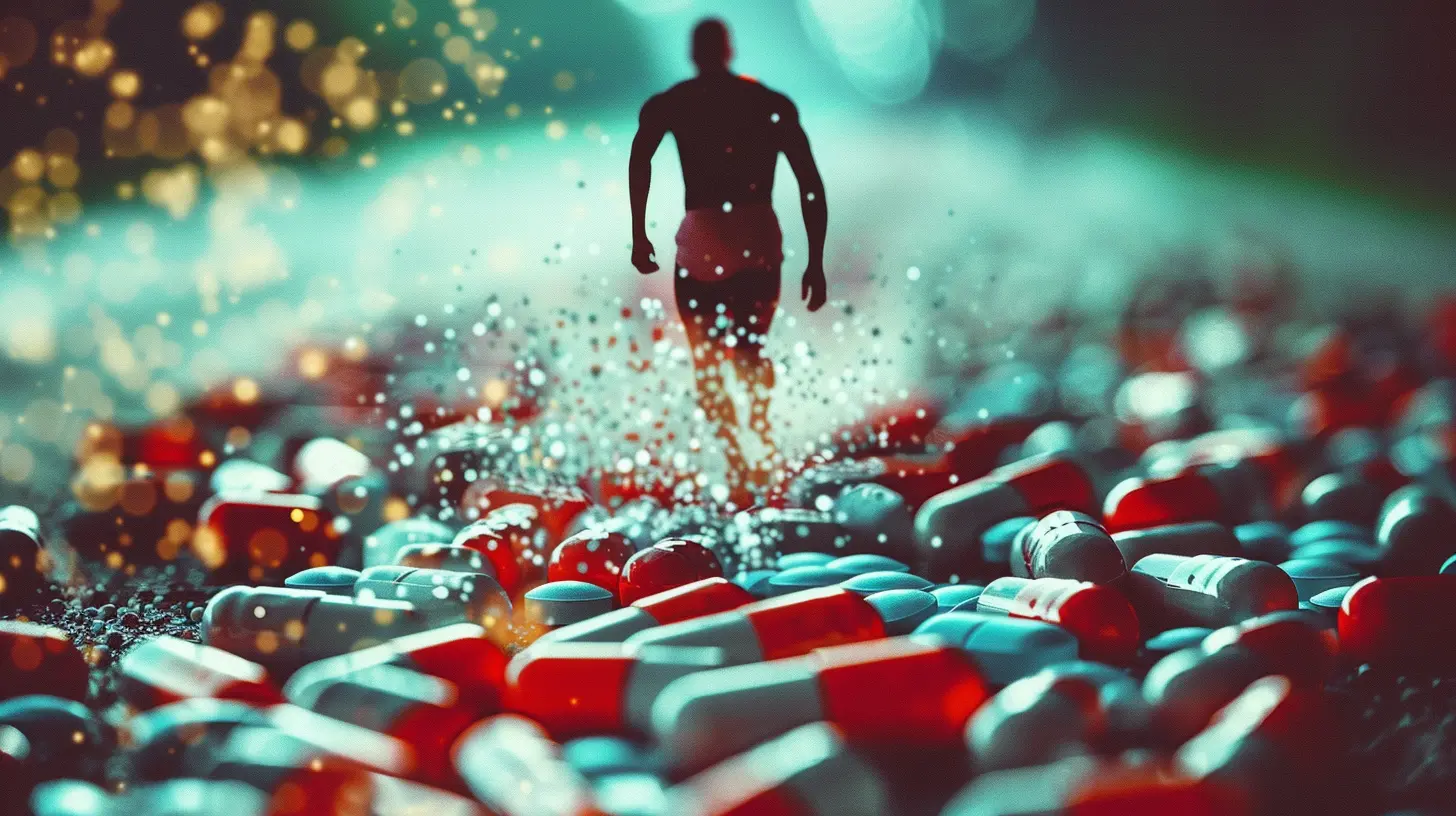Doping and Its Effect on Long-Term Athlete Health
24 May 2025
When we think about sports, we picture hard work, dedication, and natural talent coming together to create champions. But behind the scenes, some athletes take shortcuts to gain an edge—using performance-enhancing drugs (PEDs) to boost strength, endurance, and recovery. While these substances may provide temporary advantages, they come at a steep cost, particularly when it comes to long-term health.
So, what happens when the chase for victory turns into a battle for survival? Let’s dive deep into the world of doping and how it affects athletes long after their careers have ended.

What Is Doping?
Doping refers to the use of banned substances or methods to enhance athletic performance. The World Anti-Doping Agency (WADA) defines it as anything that artificially improves performance beyond natural limits. PEDs can range from anabolic steroids and human growth hormone (HGH) to stimulants, blood doping, and even gene doping.While some athletes turn to these methods to stay ahead of the competition, many don’t fully understand the consequences until it’s too late.

Why Do Athletes Dope?
The pressure to win in professional sports is immense. Athletes often justify doping with reasons like:- Competitive Edge – Athletes believe PEDs will help them perform better and recover faster.
- Fame & Fortune – Winning brings sponsorships, endorsements, and financial success.
- Peer Pressure – Seeing teammates or opponents use these substances can make athletes feel like they need to do the same.
- Injury Recovery – Some turn to PEDs to speed up healing from injuries and stay in the game.
But here’s the thing—while doping might provide short-term gains, the long-term health risks are far more severe.

The Long-Term Health Effects of Doping
Athletes who dope often don’t think about what happens after their careers end. But the damage done to their bodies can last a lifetime.1. Cardiovascular Problems
PEDs, especially anabolic steroids and blood doping agents, put a massive strain on the heart. Many athletes who used steroids in their prime have later suffered from:- High Blood Pressure – PEDs can thicken the blood, making the heart work harder.
- Heart Attacks & Strokes – Increased red blood cell production raises the risk of clotting and blockages.
- Irregular Heartbeats – Some substances disrupt the normal rhythm of the heart, leading to dangerous arrhythmias.
Many former athletes who engaged in doping have tragically passed away due to heart-related complications in their 40s or 50s—well before their time.
2. Liver and Kidney Damage
The body isn’t built to process high doses of synthetic hormones and stimulants. Over time, steroid abuse leads to:- Liver Cancer & Tumors – Studies show a higher risk of liver damage among steroid users.
- Kidney Failure – Excessive protein breakdown from PED use can strain the kidneys beyond repair.
Simply put, doping can turn your body’s filters—your liver and kidneys—into overworked, failing machines.
3. Mental Health Issues
Performance-enhancing drugs don’t just affect the body; they take a serious toll on the mind. Many dopers experience:- Depression & Anxiety – Coming off PEDs can cause extreme mood swings.
- ‘Roid Rage’ – Anabolic steroid users often suffer from uncontrollable anger and aggression.
- Addiction – Some PEDs create dependency, making it tough to stop even when the damage is clear.
For many former dopers, the battle against mental health issues is just as tough—if not tougher—than the physical consequences.
4. Endocrine System Disruption
The endocrine system controls the hormones in our bodies. Introducing artificial substances can completely throw it off balance, leading to:- Testosterone Suppression – Long-term steroid users often suffer from shrinking testicles, low libido, and infertility.
- Gynecomastia (Male Breast Growth) – Hormone imbalances can cause men to develop breast tissue.
- Thyroid Issues – Some PEDs mess with metabolism, leading to severe weight gain or loss.
Once the body’s natural hormone production is disrupted, it may never return to normal.
5. Weakened Immune System
While PEDs might make an athlete appear stronger on the outside, they often weaken the immune system, making the body more susceptible to:- Frequent Infections – A compromised immune system makes fighting off minor illnesses difficult.
- Slow Wound Healing – Injuries take longer to heal, leading to chronic pain and complications.
Imagine having the body of a former champion but the immune system of someone twice your age—that’s the reality for many ex-dopers.

Real-Life Cases: When Doping Ends in Tragedy
Several high-profile athletes have suffered or even died as a result of long-term PED use. Some names stand as stark warnings:- Arnold Schwarzenegger (Though not confirmed as a heavy doper, Arnold has publicly discussed the long-term health dangers of hormone use.)
- Andreas Münzer – A bodybuilder who passed away at 31 due to excessive steroid use.
- Lyle Alzado – The former NFL player strongly believed steroids contributed to his brain cancer before his death.
These cases serve as reminders that short-term success isn’t worth long-term suffering.
The Ethical Side of Doping
Beyond health risks, doping raises serious ethical concerns. Fair competition is at the heart of sports, and PEDs destroy that integrity. Athletes who use banned substances not only cheat their competitors but also set a dangerous example for younger generations.Organizations like WADA and the International Olympic Committee (IOC) continue to crack down on doping, but new substances and methods constantly emerge.
Can Former Dopers Reverse the Damage?
The big question—can an athlete who doped undo the damage? Unfortunately, some effects are irreversible. However, making healthy lifestyle changes can help minimize risks:- Medical Monitoring – Regular check-ups can catch issues before they become life-threatening.
- Balanced Nutrition – A proper diet supports recovery and overall health.
- Avoiding Further Drug Use – Staying off all PEDs and similar substances is crucial.
- Therapy & Mental Health Support – Addressing the psychological aspects of doping is just as important as the physical recovery.
While recovery is possible to some extent, prevention is always better than cure.
Conclusion
Doping might seem like a shortcut to success, but it leads to a lifetime of health complications. From heart problems and mental health struggles to irreversible organ damage, the risks far outweigh the rewards.For athletes, the true victory isn’t just winning medals—it’s maintaining a healthy body and mind long after their careers are over. Sports should celebrate natural talent, hard work, and dedication, not the temporary gains of artificial enhancement.
Ultimately, the best performance-enhancing substance? Hard work and perseverance.
all images in this post were generated using AI tools
Category:
DopingAuthor:

Ruben McCloud
Discussion
rate this article
3 comments
Zephyrae McCool
Doping may offer short-term gains, but the long-term health consequences for athletes are often devastating, including chronic illnesses and psychological issues. Integrity and health must come first in sports.
June 4, 2025 at 3:33 AM

Ruben McCloud
I completely agree. While doping may provide immediate performance boosts, the long-term health risks far outweigh the benefits. Upholding integrity and prioritizing athlete wellness is essential for the future of sports.
Solara Mason
Thank you for addressing such an important topic. Understanding the long-term health implications of doping is crucial for athletes, coaches, and fans alike. Let’s promote clean sports for the well-being of all athletes.
May 27, 2025 at 4:21 AM

Ruben McCloud
Thank you for your thoughtful comment! Promoting clean sports is indeed vital for the well-being of athletes and the integrity of athletics.
Bryce Snyder
Great insights! Highlighting long-term health risks of doping is crucial for future athletes. Education and prevention are key for clean sports.
May 25, 2025 at 11:28 AM

Ruben McCloud
Thank you for your thoughtful comment! I completely agree—education and awareness are vital in promoting clean sports and safeguarding athlete health.



